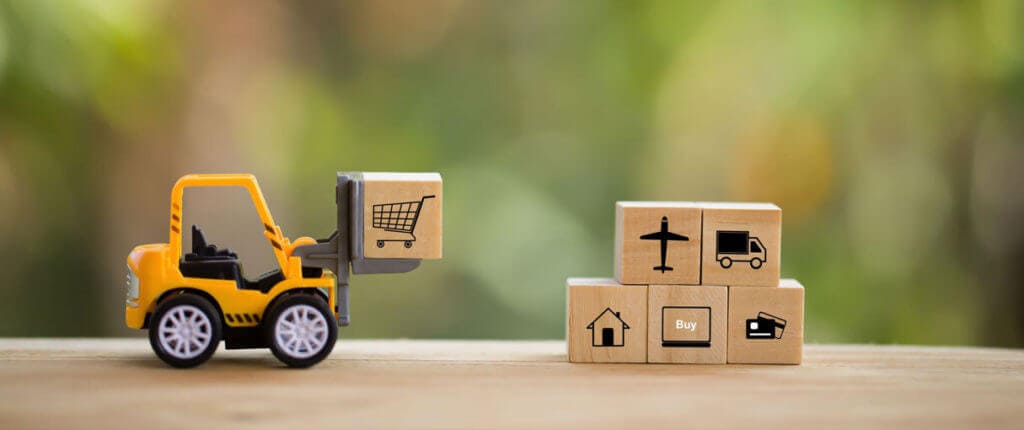Ever since commerce was born, one of the biggest and most challenging issues in addition to selling the products, has been the purchase and logistics of them. While before these were mostly handled offline and actual, physical presence was required, by now this has changed in many ways.
Today, a webshop owner might never even see the product they are selling. Of course, at the same time there are several advantages and disadvantages to this as well. Regardless, the product needs to be purchased in one way or another. In this article we will uncover the different ways you can get your hands on the product you would like to sell.
The product can be purchased by the webshop from basically 6 sources:
Purchasing possibilities
- Manufacturing your own product
- Purchasing from overseas vendors or manufacturers (e.g. from Asia)
- Buying from a domestic wholesaler
- Buying from a wholesaler in the EU
- Working with an international dropshipping company
- Working with a domestic dropshipping company (e.g. Dropshippy)
All these avenues have advantages and disadvantages. Now let’s take a look at these step-by-step.
Manufacturing your own product
Manufacturing your own product means exactly what its name entails. In this case, we are the ones who purchase the material and make the product. It can be an artisanal product we make ourselves, such as a cutting board, a piece of furniture, a piece of clothing or some decoration.
In this case, we need to purchase the material. These products are customs and VAT exempt, however, VAT on the material must be paid. You can also deduct the cost of manufacturing.
If you don’t want to deal with the issues of manufacturing your own product, there are several options for purchasing the ready product, whether you want to work with domestic, EU or oversea manufacturers or even Dropshipping partners.
Purchasing from outside the EU: locating a factory or wholesaler
It is a very common practice for webshops to buy products on the Asian markets. In this case, when the product enters the EU, it is subject to customs and VAT. Product classification determines the amount of this cost and must be paid based on the purchase price. Many people don’t know however, that delivery cost is subject to VAT as well.
The difficulty here is that it’s you who needs to deal with and pay for the purchase. You must pay the VAT in advance when the package arrives, and you can only claim it back after the sale. This is why people play around with the amount they declare on the package. If the amount is low, customs and VAT will be based on this lower amount. However, customs regulations have become much more rigorous in the last couple of years and penalize fraud. Officers open packages to verify that the value of the product is equivalent to the value indicated on the packaging.
Another great disadvantage of purchasing from abroad is that typically there are no Hungarian instructions included in the package. However, it is an obligation. It may sound bizarre, but simple cream has to have Hungarian instructions provided.
What’s more, there are special groups of products that require additional permits to sell. These include many cosmetics, food, or nutritional supplements.
In light of all these drawbacks, many people choose to purchase in the EU.
Purchasing from the EU
In the EU, you can purchase either from
- a domestic, Hungarian company or wholesaler
- or a non-Hungarian company, but still in the EU
Wholesaler in the EU
If there is no actor on the domestic market selling the desired product, we can turn to actors on the EU market.
In this case, there are neither customs nor VAT requirements. Plus, as a company, our purchase is exempt from VAT. However, at the point of sale, the VAT of the margin must be paid.
Domestic wholesaler
One option for purchasing is to choose to work with a domestic wholesaler. In this case we are looking for a company that typically imports goods in large quantities and resells them to domestic retailers.
In Hungary, for instance, we are familiar with Ramiris, who basically has all electronic devises on stock to sell to webshop owners.
If we choose to work with a domestic partner, we don’t need to deal with customs because this is handled by our partner. This comes at a cost of course, as in most cases the product will cost more than if we directly bought it ourselves.
When making the purchase from a domestic retailer, on the one hand we don’t have to pay customs, however, we do have to pay VAT (that can be reclaimed after the sale).
Dropshipping
While Dropshipping has been making a buzz for many years on international markets, we have witnessed a great breakthrough in the Hungarian markets in the last few years. Recently, we’ve seen domestic dropshipping companies emerging along with the first large dropshipping marketplace.
International dropshipping
The dropshipping model has been the new, ground-breaking solution for purchasing in recent years. Here, purchasing, storing and shipping are all handled by a partner. Therefore, you don’t need to deal with importing the product or clearing customs. And the greatest advantage is that you don’t even need to buy inventory, just pay for the products you sell in your webshop.
Through dropshipping, the product is delivered directly to the buyer, meaning that seller doesn’t even come into physical contact with the product.
There are both international and domestic players in this game.
When working with an Asian partner in the field of dropshipping, delivery times can be terribly long. In some cases, it takes 1-2 months for the package to arrive and what’s more, usually there is no cash on delivery option.
A further disadvantage is not knowing what the packaging will be like. Probably they’ll just put it in a simple, paper box or wrap it in plastic foil. While before there was a price threshold under which there were no customs or VAT obligations, this has been removed recently. Implying that every product that is dropshipped from abroad (non-EU territory) is subject to customs and VAT. And be aware to something many people don’t know – this charge is paid by the buyer!
From now on, the buyer is going to receive a customs clearance procedure paper and has to pay duty and VAT on the package. And only after all this can they receive the package.
In case of dropshipping in the EU, there is no duty or VAT. There is however delivery cost and no possibility for cash on delivery payment.
Domestic dropshipping
Several traditional, domestic dropshipping companies were created partially to address these problems. On the plus side, there are Hungarian instructions with every product, the delivery costs are not exorbitant and you can have cash on delivery. On the flipside, these companies have very limited access to webshop engines, which results in being able to offer only a limited selection of products.
And this is where we can speak about one of the greatest trailblazers on the domestic market, Webshippy’s online marketplace.
Webshippy Marketplace
Webshippy Marketplace combines the advantages of the above-mentioned models and does its best to eliminate all additional hurdles.
Dropshippy is actually a marketplace where wholesalers and manufacturers – or even webshops - can list their products. And webshops cherry-pick this inventory for items to sell in their own webshops. All of this is easy, fast and efficient.
Advantages of Webshippy Marketplace:
- Hundreds of wholesalers have already listed their products
- Tens of thousands of products are available
- Every product includes Hungarian instructions
- Cash on delivery option
- Low delivery costs and fast delivery
- Controlled, perfect packaging
- Simple synchronization between the systems of webshops and the Marketplace
- One single click to synchronize product database and inventory
- Automatic invoicing
Would you like to know more about Webshippy Marketplace? Click here to see how our system works.

